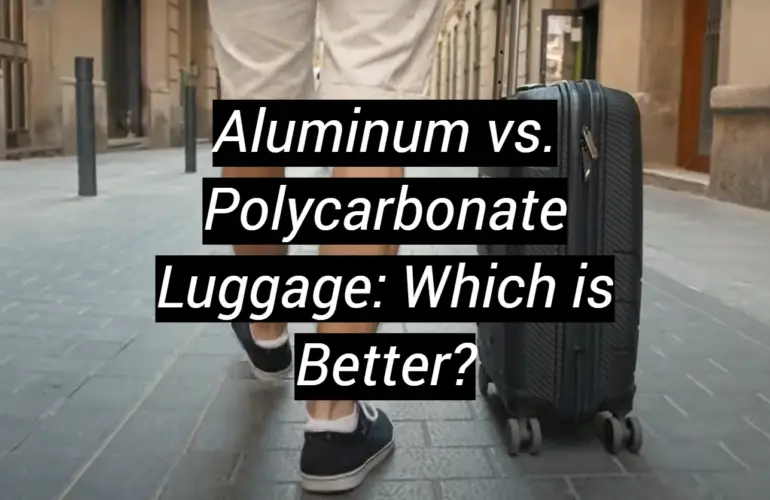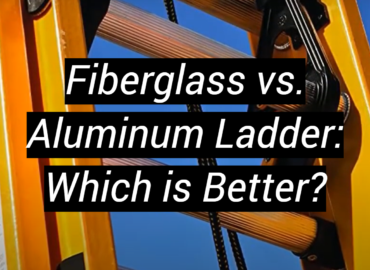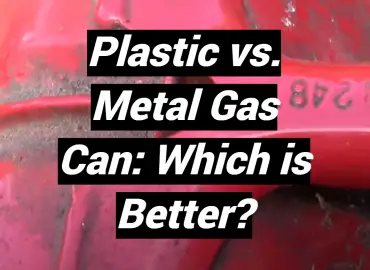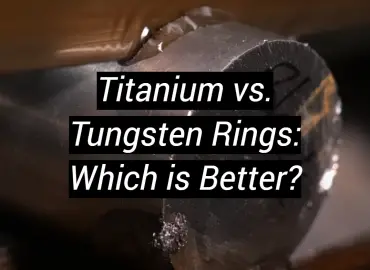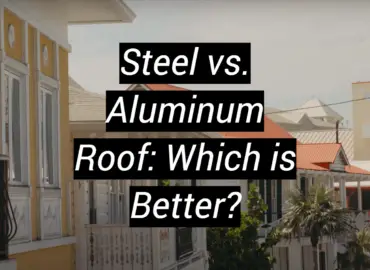Travelling can be an arduous task, especially when trying to keep items organized and secure during transit. Finding the right type of luggage is essential for any vacation or business trip. But how do you choose between traditional aluminum frames and tough polycarbonate cases? We know it can be tricky to understand all the differences between these materials which is why we’ve written this blog post on Aluminum vs Polycarbonate Luggage: Which is Better? Here, we will discuss everything about these two types of luggage from durability and convenience to cost-effectiveness and beyond so that you are able to make an informed purchase decision that works in your favor!
What Is Aluminum Luggage?
Aluminum luggage is a type of travel luggage that is made from aluminum, usually in the form of anodized aluminum.
They tend to be water resistant and don’t rust or corrode like other materials. The hard shell cases offer more protection than soft-sided pieces, making them ideal for travelers who need added security when traveling with valuable items.What Is Polycarbonate Luggage?
Polycarbonate luggage is a type of suitcase made from incredibly tough and durable plastic. It is lightweight, yet strong enough to withstand the rigors of travel, and it resists scratches and abrasions far better than traditional aluminum luggage. Many travelers prefer polycarbonate luggage because it usually features ergonomic handles, smooth-rolling wheels, plenty of exterior pockets for storage, and a range of vibrant colors that make it easier to spot your bag on the carousel at the airport.
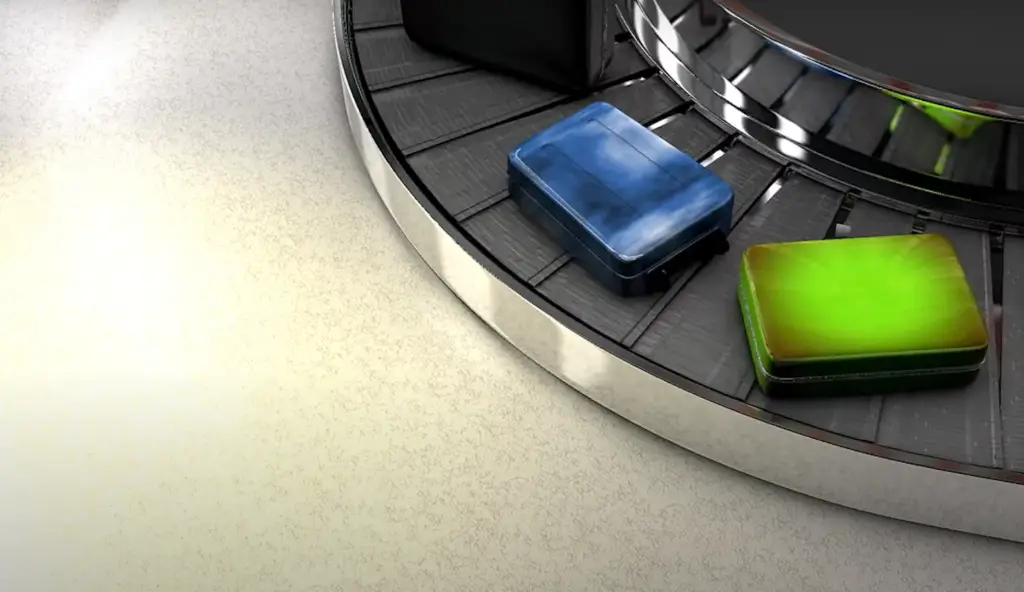
In addition to its strength and durability, polycarbonate luggage also offers an impressive level of protection for travelers’ belongings. Unlike aluminum suitcases, which can easily be dented or scratched by other items in baggage compartments or during loading/unloading at airports, polycarbonate luggage is virtually indestructible. This material also helps to protect from weather damage and water infiltration, so travelers can rest assured that their items remain safe throughout their journey.
Ultimately, polycarbonate luggage offers a great combination of durability, protection, and style that make it a popular choice for frequent flyers who want an attractive and reliable way to transport their items. While aluminum suitcases still have their place in the market, many travelers are now turning to polycarbonate varieties for all of their travel needs. [1]
Aluminum vs. Polycarbonate Luggage: Which is Better?
When it comes to deciding between aluminum and polycarbonate luggage, there are a few important factors to consider. Aluminum is lightweight, durable and easy to clean. It is also resistant to corrosion and weathering, making it ideal for frequent travelers. However, aluminum can be prone to dents and scratches if not properly cared for.
On the other hand, polycarbonate luggage is incredibly sturdy and impact-resistant. It does not corrode or rust like aluminum can, so you won’t have to worry about your suitcases being damaged in transit. The downside of polycarbonate luggage is that it tends to be heavier than aluminum bags – which can make packing more difficult if you’re trying to fit everything into one suitcase. In terms of pricing, aluminum bags tend to be more expensive than polycarbonate ones, so it’s important to consider your budget when shopping around for luggage.
Ultimately, the choice between aluminum and polycarbonate luggage depends on your travel style and budget. Both options offer great protection for your belongings, but you may prefer one material over the other depending on what kind of trips you take and how much money you want to spend. Whichever type of suitcase you decide to go with, make sure that it is strong enough to protect your things from wear and tear while keeping them dry in all types of weather conditions. With the right bag by your side, you can rest assured that all your travels will be safe and sound.
Pros and Cons of Aluminum Luggage
Pros of aluminum luggage:
- Durability – Aluminum is extremely strong and durable, allowing it to resist wear and tear from being checked in at airports or tossed around in transport vehicles. With proper care, an aluminum suitcase can last for many years.
- Lightweight – Compared to other materials like hard plastic or leather, aluminum suitcases are surprisingly light. Even larger sizes won’t weigh you down during travel.
- Protection – The hard outer shell of an aluminum suitcase provides superior protection for its contents from bumps and drops that can occur when traveling.
- Style – Aluminum luggage looks sleek and modern, with a variety of colors available to choose from so you can express your personal style.

Cons of aluminum luggage:
- Cost – Aluminum suitcases are more expensive than polycarbonate or plastic versions due to the higher quality materials and craftsmanship required to make them.
- Prone to Scratches – Though durable, aluminum can easily be scratched or dented if not cared for properly while traveling.
- Risk of Warping – When exposed to heat, aluminum can become warped, so it’s important to keep your suitcase away from any extreme temperatures.
- Risk of Damage from Liquids – Aluminum is not waterproof, so if any liquids leak inside the suitcase it could damage your belongings. For this reason, make sure to line the interior of your luggage with a water-resistant material for extra protection.
Overall, aluminum suitcases are ideal for those looking for a lightweight and durable option that will last many years, but they come with a higher price tag than other types of suitcases on the market. When shopping around for luggage, consider both the pros and cons of aluminum before making your purchase decision. [2]
Pros and Cons of Polycarbonate Luggage
Polycarbonate luggage is a popular choice among travelers. Its lightweight and durable construction make it an ideal option for frequent flyers and adventure seekers alike. Here are some of the pros and cons of polycarbonate luggage:
Pros:
- Lightweight: Polycarbonate luggage is much lighter than aluminum options, making it easier to carry and store.
- Durability: Polycarbonate luggage can withstand more wear and tear than aluminum suitcases, meaning they won’t break or get dented as easily during your travels.
- Price Point: Since polycarbonate is less expensive than aluminum, you can often find great deals on high-quality luggage that won’t break the bank.
Cons:
- Aesthetics: Polycarbonate luggage can often look dull and lack the flair of aluminum suitcases.
- Weight Restrictions: Since polycarbonate is lighter than aluminum, some airlines may have stricter weight restrictions for checked bags made from this material.
- Heat Sensitivity: Polycarbonate can be more sensitive to extreme temperatures than aluminum, and could warp or break if exposed to too much heat.
Maintenance Tips for Aluminum Luggage
When it comes to aluminum luggage, a little maintenance goes a long way. Here are some tips on how to keep your aluminum luggage in tip-top shape:
- Clean regularly – Regularly wiping down the exterior of the bag with a damp cloth prevents dirt and dust buildup. If there are any stubborn spots, use mild soap or detergent for better results.
- Use protectants – Spray a layer of protectant or waterproof sealer onto the surface of the bag every couple months before traveling. This should prevent moisture from entering into the material and protect its finish.
- Avoid excess weight – Overstuffing or carrying a heavy load can cause damage to wheels and handles as well as put strain on the zippers. Make sure to keep your luggage light and make use of all available packing space.
- Store properly – When not in use, store your luggage somewhere dry and away from direct sunlight or extreme temperatures that can cause discoloration and wear-and-tear.
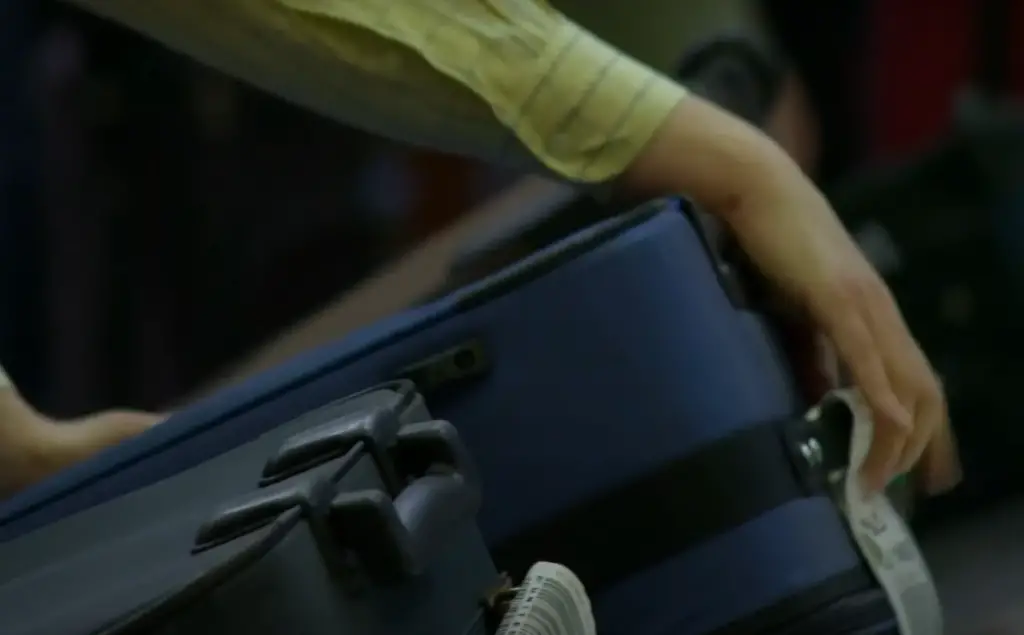
By following these maintenance tips for aluminum luggage, you should be able to enjoy a superior travel experience with no problems! [3]
Maintenance Tips for Polycarbonate Luggage
Polycarbonate luggage is a popular choice due to its lightweight, resilient, and durable nature. It is a great option for frequent travelers as it can withstand wear and tear better than other materials. Here are a few tips to keep in mind when caring for polycarbonate luggage:
Clean your luggage regularly using mild soap and warm water. Do not use abrasive cleaning products or hard objects such as steel wool or wire brushes as these may damage the surface of the bag.
Spot clean any stains with a damp cloth. Use only light household cleaners such as rubbing alcohol or white vinegar on tough stains.
After each trip, air-dry your luggage before storage. This will help prevent mold and mildew growth.
To avoid scratches and other damage, store your luggage away from sharp or abrasive objects. Place it in a dry, dust-free area with enough air circulation to keep the interior of the bag well ventilated.
Inspect your suitcase for any loose parts, rips, or tears before each use. Check zippers and straps for wear and tear as well.
Follow these tips and you can be sure that your polycarbonate luggage will stand up against any adventure!
Additionally, using a protective cover on your polycarbonate luggage is always a good idea to further extend its life – especially if it is being used often or is kept in storage for extended periods of time. A good-quality cover will help protect your luggage from dust, dirt, and scratches. It will also provide an extra layer of security on the outside of the bag.
Overall, polycarbonate is an excellent choice for travelers who need something lightweight and durable for their journeys. With proper care and maintenance, it can last a very long time. Keep these tips in mind to ensure that your luggage remains in top condition no matter how often you use it! [4]
Alternatives to Aluminum and Polycarbonate Luggage
Besides polycarbonate and aluminum, there are a variety of materials used to make luggage. Leather is a popular material for bags that require more of an upscale look. It’s durable enough to last and can be wiped clean with ease. Nylon is also a popular option — it’s lightweight yet strong enough to keep your belongings intact, and comes in a variety of colors. ABS plastic is another common choice because it’s both lightweight and affordable. Of course, each material has its own advantages and disadvantages so be sure to consider all the options before making your purchase.

When choosing between different types of luggage, always take into account the purpose you need the bag for as well as how important durability or weight savings may be for you.
But if you need something lightweight and inexpensive to use on short trips, then nylon or ABS plastic may suit your needs better.Ultimately, it comes down to personal preference — but knowing the pros and cons of each type of material can help guide your decision-making process.
Finally, no matter what type of luggage material you choose, make sure it has plenty of organizational features like pockets and compartments. This will help keep everything organized during your travels so you don’t have to worry about taking too much time hunting around for things. [5]
More Tips on Choosing a Perfect Luggage
- Consider how often you’ll be using your luggage: If you travel frequently, polycarbonate is a great choice because of its durability and lightweight design. Aluminum is also durable but may be too heavy for multiple trips in a short period of time.
- Think about the type of traveler you are: Are you an organized person who values organization? If so, aluminum is better for its larger compartments that can easily store items like clothing or toiletries. Polycarbonate suitcases are more suited to travelers who want maximum mobility due to their smaller size and wheeled designs.
- Look at the cost: When it comes to luggage, price does matter since both materials have different costs – aluminum is generally more expensive than polycarbonate.
- Consider the warranty: The warranty on your luggage should be an important factor when making a decision. Aluminum suitcases generally come with longer warranties than polycarbonate, so make sure to compare the two before making a final purchase.
- Evaluate the style: Do you prefer classic designs or modern aesthetics? Aluminum suitcases are typically more classic in design, whereas polycarbonate offers a range of styles that can fit any type of traveler’s aesthetic preference.
Finally, consider how well each material is secured against theft and damage – both aluminum and polycarbonate luggage have locks and safety features that can protect your belongings against unauthorized access or rough handling. Make sure to read reviews on both materials before deciding which one is the best choice for your needs.
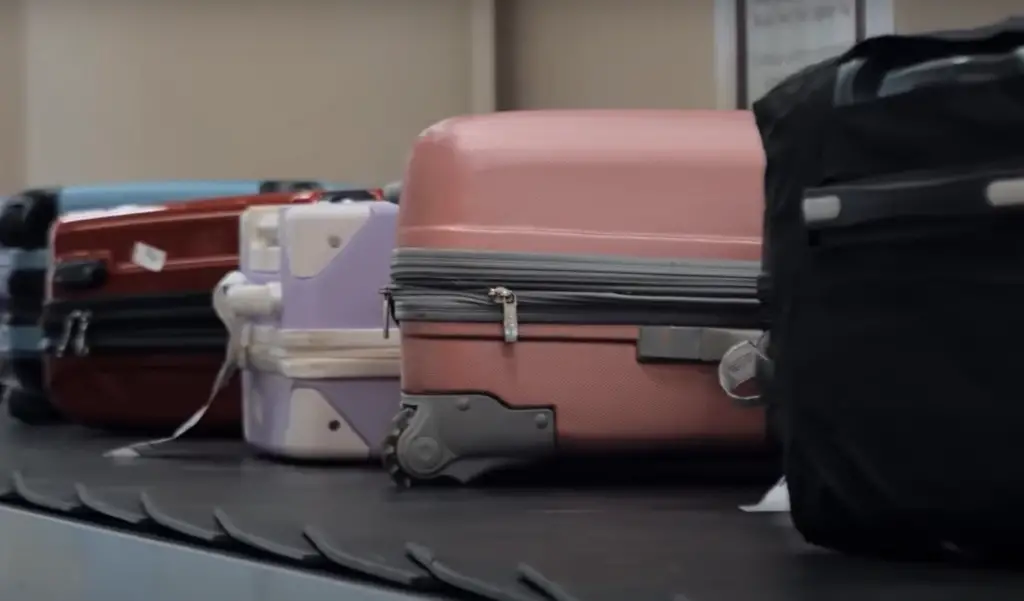
No matter what material you choose, it’s important to consider all of these factors when selecting a luggage and make sure that it meets your individual requirements. With some research and careful consideration, you can find the perfect suitcase for any journey!
The most important part of choosing the right luggage is finding something that fits your lifestyle and budget. Whether you decide on an aluminum or polycarbonate suitcase, with careful research and thoughtful consideration, you are sure to enjoy years of travel with a reliable companion by your side! [6]
FAQ
Which is better: Aluminum or polycarbonate?
The answer to this question depends on the individual and their needs. Aluminum is a more durable material that can withstand impacts better, but it is also heavier and more expensive than polycarbonate. Polycarbonate is lighter and cheaper, but it may not be as resistant to damage as aluminum. Ultimately, you should decide which material best fits your lifestyle and budget when choosing luggage.
Are there any other factors to consider besides cost and durability?
Yes, you should also consider the size of the suitcase, its internal organization features, its locking mechanisms (if applicable), its weight capacity, how easy it is to clean or wipe down, if it has wheels or handles for carrying, and if the materials are waterproof or water-resistant.
Additionally, consider if it is expandable or collapsible to increase packing space if needed.
What is polycarbonate?
Polycarbonate is a type of plastic that is very lightweight and impact-resistant. It has many uses, such as safety helmets, eyewear lenses, automotive components, and more recently, luggage. Polycarbonate can be transparent or colored, making it an attractive choice for many travelers.
Are there any advantages to using aluminum over polycarbonate?
Aluminum is strong and can withstand impacts better than polycarbonate, which makes it ideal for heavier items like books or electronics. Aluminum is also a good conductor of heat and cold and may keep the contents of your suitcase cooler or warmer for longer periods of time.

It is also more corrosion-resistant than polycarbonate, so it will last longer with proper care. Lastly, aluminum suitcases may have a more sophisticated look due to its metallic finish.
Are there any advantages to using polycarbonate over aluminum?
Polycarbonate is much lighter than aluminum and can make carrying your luggage less of a burden. It is also cheaper and easier to find in various sizes and styles. Polycarbonate is more resistant to scratches and dents than aluminum, which makes it ideal for everyday use or travel on rough terrain. Additionally, some brands offer collapsible designs that take up less storage space when not in use.
What is the downside of aluminum luggage?
The main downside of aluminum luggage is its weight. Aluminum is much heavier than polycarbonate, so it may be difficult to lug around if you have larger suitcases or multiple pieces of luggage. Additionally, it can be more expensive than other materials due to the cost of manufacturing and producing high-grade aluminum.
Despite these potential drawbacks, however, aluminum still has many advantages that make it a worthwhile material for luggage. The luxurious look and feel combined with the strength and durability makes it a great choice for travelers who want something stylish yet functional.Useful Video: Aluminum vs Polycarbonate Suitcase – MVST Select Suitcase Review
Conclusion
Ultimately, it is up to you to decide which type of luggage is better for you. Aluminum luggage is extremely durable and lightweight, but can be more expensive than polycarbonate luggage. It’s also the most popular choice among frequent travelers due to its strength and style. On the other hand, polycarbonate luggage offers many benefits – like being scratch-resistant, affordable, and highly durable – making it a great option for those looking for more economical options. Either way, both materials offer excellent protection from damage while traveling and make great choices depending on your needs. So when choosing between aluminum or polycarbonate luggage, consider your budget as well as the level of durability and protection you need before making your decision.
Good luck in finding the perfect luggage for your travels. Happy packing!
References:
- https://roamluggage.com/blogs/news/is-polycarbonate-luggage-durable
- https://maphappy.org/road-tested-the-core-differences-between-polycarbonate-and-aluminum-suitcases/
- https://luxuryjetsetter398591886.wordpress.com/2021/06/23/rimowa-luggage-aluminum-vs-polycarbonate-which-should-you-choose/
- https://www.cleverjourney.com/aluminum-suitcases/
- https://containerfaqs.com/polycarbonate-best-material-luggage-travel/
- https://www.executivetraveller.com/community/view/5773/aluminium-or-polycarbonate-rimowa

